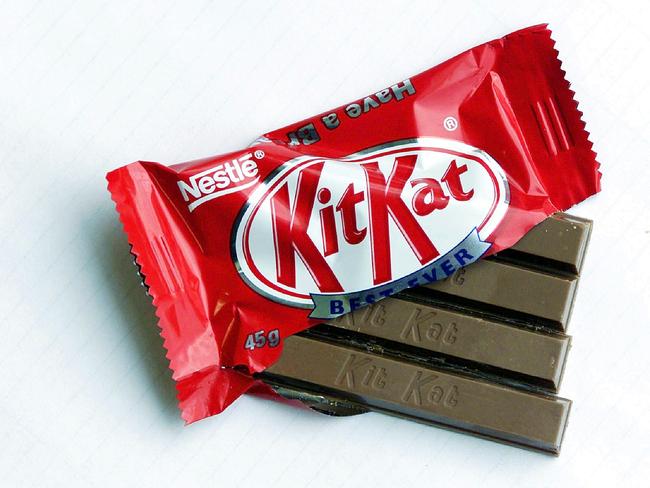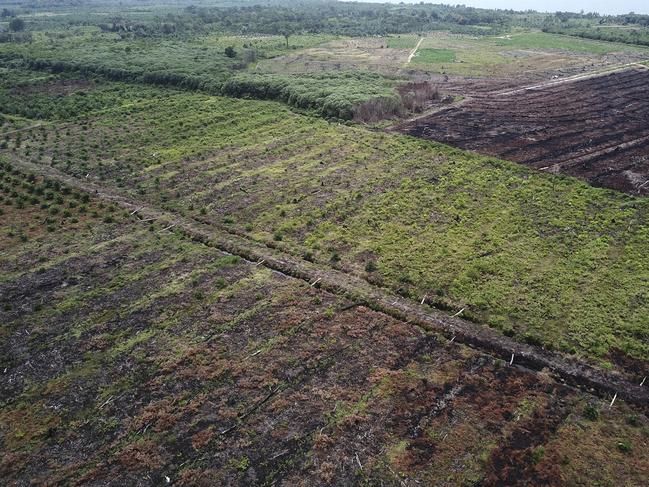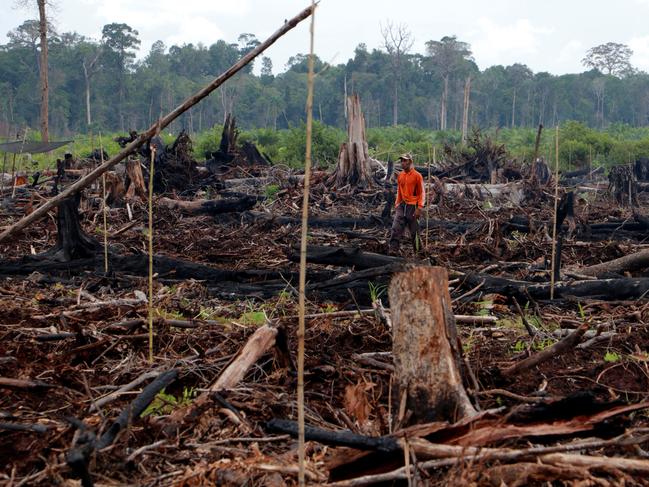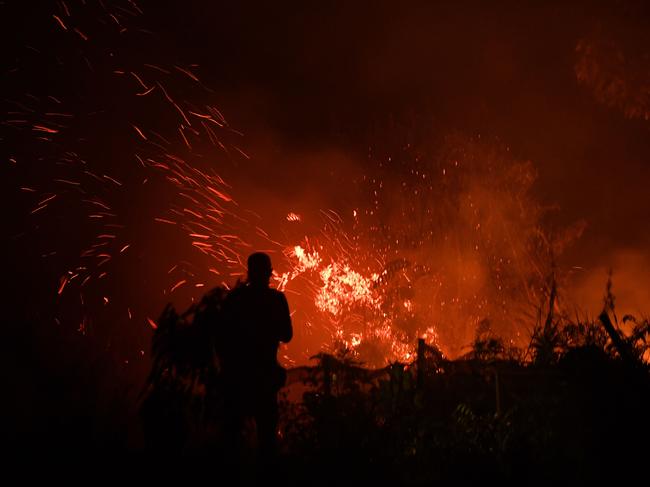Satellites link KitKats to illegal deforestation
It’s the ingredient that gives chocolate its smooth appearance. But the use of palm oil in KitKats, Mars bars and Maltesers is allegedly proving deadly.
Conservation
Don't miss out on the headlines from Conservation. Followed categories will be added to My News.
It’s the ingredient that gives chocolate its smooth and shiny appearance but the use of palm oil in KitKats, Mars bars and Maltesers is driving endangered tigers, orang-utans, rhinos and elephants to extinction, a prominent environmental organisation has claimed.
Illegal deforestation in an Indonesian protected wildlife reserve has been linked back to international brands Nestle, Unilever, PepsiCo, Mondelez, General Mills, Kellogg’s, Mars and Hershey’s.

A new study, backed by evidence from satellite imagery, by the Rainforest Action Network (RAN) - a US-based environmental group - links a palm oil supply chain from a plantation inside Indonesia’s protected Rawa Singkil Wildlife Reserve directly to the multinational organisations.
The RAN investigation showed that Asian palm oil traders Golden-AgriResources (GAR) and Musim Mas Group purchased oil from two mills that buy palm fruit from a privately owned farm in Sumatra within the conservation zone.

The Rawa Singkil Wildlife Reserve sits inside the Lesser ecosystem, which spans 2.6m hectares (6.4m acres) of peat lands and forests, is the last place on earth where Sumatran orang-utans, elephants, tigers and rhinos coexist in the wild.
The reserve is home to more than 200 mammal and 500 bird species, many of which cannot be found anywhere else in the world.
Companies that have been named and shamed in the report have promised to follow up the reports claims and if proved accurate, end sourcing oil from unlawfully deforested areas.
“The evidence resulting from our investigations is unequivocal,” said RAN’s forest policy director Gemma Tillack.
“Despite ... these big name brands publicly promised to end deforestation for snack foods years ago, they are still sourcing from the companies driving palm oil plantation expansion into the heart of one of the highest priority conservation landscapes for addressing the climate crisis and wildlife extinction on the planet:.”

Last year, the Roundtable on Sustainable Palm Oil – an association of corporate partners and environmental groups - dumped Nestlé from its program due to breaches in their ‘code of conduct’.
Sally Strautins, Nestlé Oceania’s corporate affairs manager denied the veracity of the study.
MORE NEWS
15 secret ways to get more out of Apple’s new software
New vaping warning as illness cases soar
How to beat record-low savings rates
But while GAR and Musim Mas are on the record claiming the mills do not source from Rawa Singkil Wildlife Reserve they have both admitted they could not fully trace the links between the mills it uses and the plantations they buy from.
“We are aware of the investigation by RAN,” Ms Strautins said.
“We immediately engaged with our supplier GAR, which requires all its supplier mills to establish traceability-to- plantation and to identify all the independent plantations and smallholders from which they source.
“Additionally, they also conducted verification on the ground.
“GAR confirmed that these two mills — PT Global Sawit Semesta and PT Samudera Sawit Nabati — do not source palm oil from plantations engaged in deforestation activities in the Rawa Singkil Wildlife Reserve.”

The company said that 100 per cent of its palm oil supply chain is monitored by satellite technology.
“Nestlé is opposed to deforestation and the destruction of natural habitats around the world,” Ms Strautins said.

A spokesperson from Mars said the company is not directly supplying palm oil from the suppliers noted and takes allegations seriously.
“We expect that GAR and will investigate fully and take appropriate actions pending verification of the results,” the spokesperson said.
“Upon initial review, GAR has found that their suppliers are not procuring from the mills in question; and Musim Mas has asked suppliers in the region to exclude the two plantation companies mentioned by the report.
“As part of our Palm Positive Plan, Mars is working to deliver 100 per cent deforestation-
free palm oil by the end of 2020.
“We’re also collaborating on the ground, working with relevant third parties and stakeholders within high-stakes geographies and fragile ecosystems to create a path for successful, sustainable smallholder farming and natural resource management.”
This year 328,000 hectares of rainforest has been torched in Indonesian Borneo and Kalimantan for palm oil farms.
In 2015, the Southeast Asian Air Haze was an international pollution crisis that enveloped Malaysia, Singapore, Vietnam, Cambodia, southern Thailand and the Philippines triggering global outrage.
In 2015, 2.6m hectares of forest was cleared by fire and caused an economic loss of
US$16.1 billion, according to the World Bank.
